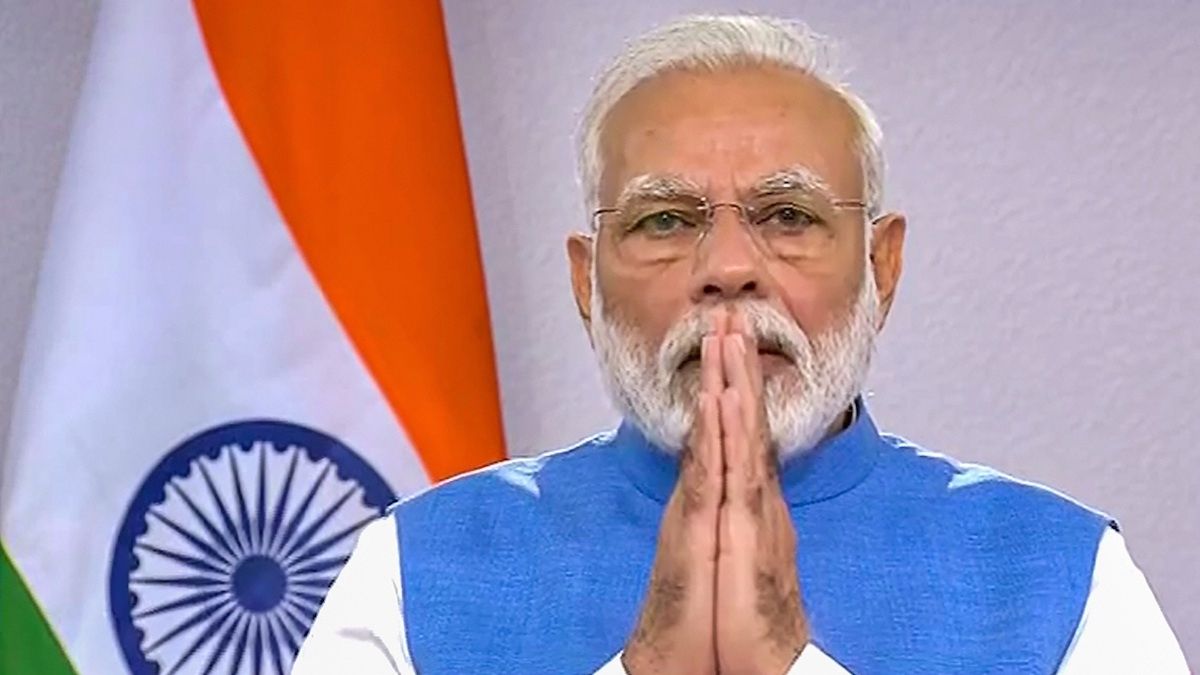
Keep it short and simple; it is often a mantra for successful communication strategy. This is even applicable to other areas of life. A simple “charkha” symbolised “self-reliance” and “swadeshi” during the Independence movement, whereas, in the present context, a small rounded spectacle symbolises the government’s vision of Swachh Bharat. They are simple tools with effective impact. The Indian government, through its various policy initiatives, is trying to realise the vision of Bapu, which is based on simple ideas of truth, non-violence, swadeshi and self-reliance.
His vision of Swachhta, self-reliance, development of Bharat, heathy India, khadi, etc, have been incorporated in the schemes of Swachh Bharat, Make in India, Fit India, promotion of naturopathy and yoga, promotion of khadi as a global brand, etc. What remained unrealised, till date, was Bapu’s vision of swadeshi. Mahatma Gandhi’s idea of swadeshi was based on love and compassion. Bapu while advocating swadeshi, mentioned that the individual is supposed to serve his/her immediate neighbour, which doesn’t mean disservice to distant people or exclusion of them.
According to him, advocating of swadeshi doesn’t mean mere rejection foreign manufactures just because they are foreign. It would be a criminal folly and a negation of swadeshi spirit, if one is wasting national time and money on promotion of those manufacturing products for which it is not suited. A true votary of swadeshi will never harbour ill-will towards the foreigner. Swadeshi, therefore, is not a cult of hatred. It is a doctrine of selfless service that has its roots in the purest ahimsa, i.e. love.
This simple swadeshi message is often been misunderstood, with a narrowed definition of adoption of local goods by rejecting foreign products. This misunderstanding is based on hatred, contrary to Bapu’s message of love and compassion. If analysed correctly, we may find replication of Bapu’s ideals of swadeshi in Prime Minister Narendra Modi’s “Aatmanirbhar Bharat”. First, we may have to understand the context of launch of Aatmanirbhar Bharat.
The Covid-19 pandemic has destroyed the interlinkages between the global world, significantly. The countries, which were interlinked and interdependent and used to see outward for their local needs, have suffered a blow, due to restricted cross-border movement of goods and services. The global world could not have ever thought of protectionist regime and supporting the cause of domestic products, until the advent of, coronavirus-led economic disruption.
Dealing with this crisis and transforming it into an opportunity, India has launched the Aatmanirbhar Bharat programme. The country with no capability of producing PPE kits, N-95 masks and other basic equipment in our fight against Covid-19, till March 2020, had ensured production of two lakh PPE kits and two lakh N95 masks per day, within two months of time, realising its own manufacturing potential. If this could be produced, in-house, during a crisis, why not other products? The country fully dependent on imports for these basic pharmaceutical items, became self-reliant within two months of time.
The government seems to have thought of replicating this success story into other areas, making the country “aatmanirbhar” for its own requirements. Aatmanirbhar Bharat envisages a self-reliant economy, whereby the national needs could be met domestically. The demand is to be met by the supply created through an enabling environment of “aatmanirbharta”. It doesn’t mean policy of isolation or protectionism but a policy of support and facilitation to make India realise its true potential.
Like Bapu’s swadeshi, the concept of Aatmanirbhar Bharat is based on love and compassion for our local products, without any hatred for imported items. This love, would lead to rise of local brands to the global level. When 130+ billion Indians become “vocal” about “local” products, its sound could be heard globally, placing Indian products on the world map.
This vocality of local products could be understood from Gandhi’s explanation of swadeshi, in his following words: “If we follow the swadeshi doctrine, it would be your duty and mine to find out neighbours who can supply our wants and to teach them to supply them, where they do not know how to proceed, assuming that there are neighbours who are in want of healthy occupation.” India, while celebrating Gandhi’s 150th birth anniversary, couldn’t have given a better tribute than the launch and success of ‘Aatmanirbhar Bharat’, based on Bapu’s vision of swadeshi and selfreliance. Let’s all pledge for “aatmanirbharata”. “Happiness can be found even in the darkest of times, if one only remembers to turn on the light.”
Santosh Ajmera is Joint Director, Regional Outreach Bureau, I&B Ministry, and in-charge of publicity n campaign for GOI, in Maharashtra and Goa region; He is also a research fellow under Ministry of AYUSH, on the subject ‘Gandhi and Communication’. Views are strictly personal.